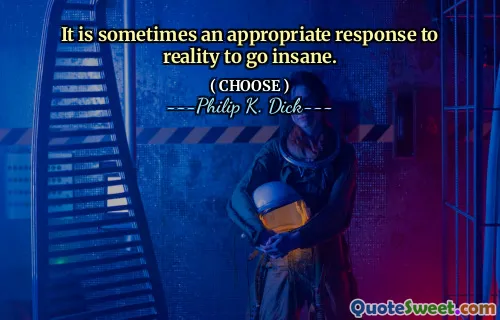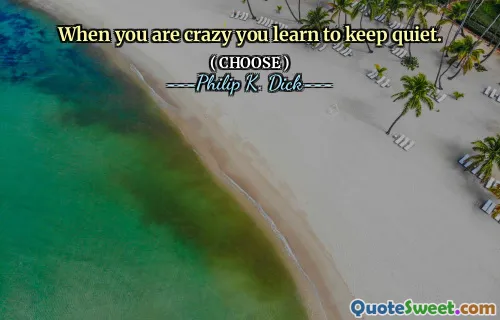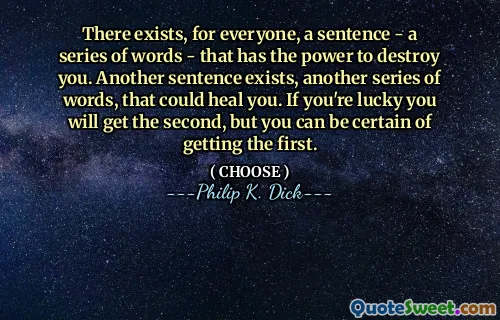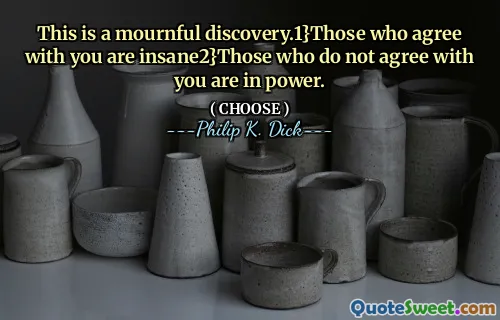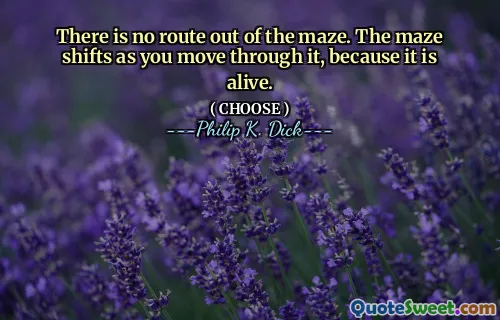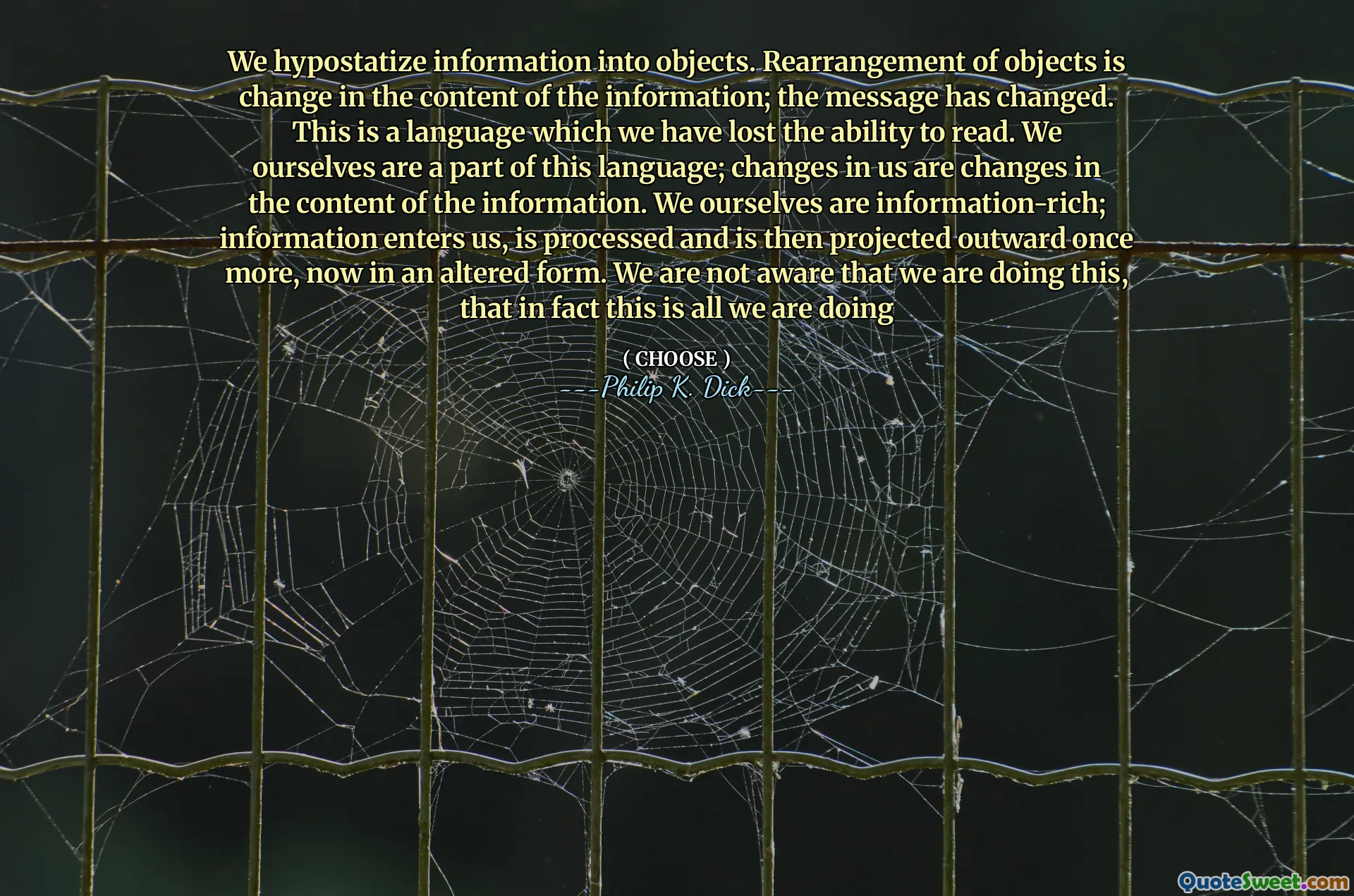
We hypostatize information into objects. Rearrangement of objects is change in the content of the information; the message has changed. This is a language which we have lost the ability to read. We ourselves are a part of this language; changes in us are changes in the content of the information. We ourselves are information-rich; information enters us, is processed and is then projected outward once more, now in an altered form. We are not aware that we are doing this, that in fact this is all we are doing
In the exploration of how we perceive and interact with information, Philip K. Dick suggests that we often categorize information into tangible objects. This arrangement and rearrangement of objects signifies a transformation in the underlying information, indicating that the message itself has evolved. This process of encoding and decoding has become a forgotten language, highlighting a disconnect between our instinctual understanding of information and our conscious awareness of it.
Moreover, Dick emphasizes that we are integral to this cycle of information. As beings rich in information, we absorb, process, and reinterpret information, which we then express back into the world in modified forms. This continuous exchange goes unnoticed, as we may not recognize that our interactions with information essentially define our existence. Our changes reflect alterations in the content we engage with, making us active participants in the flow of information rather than passive consumers.
